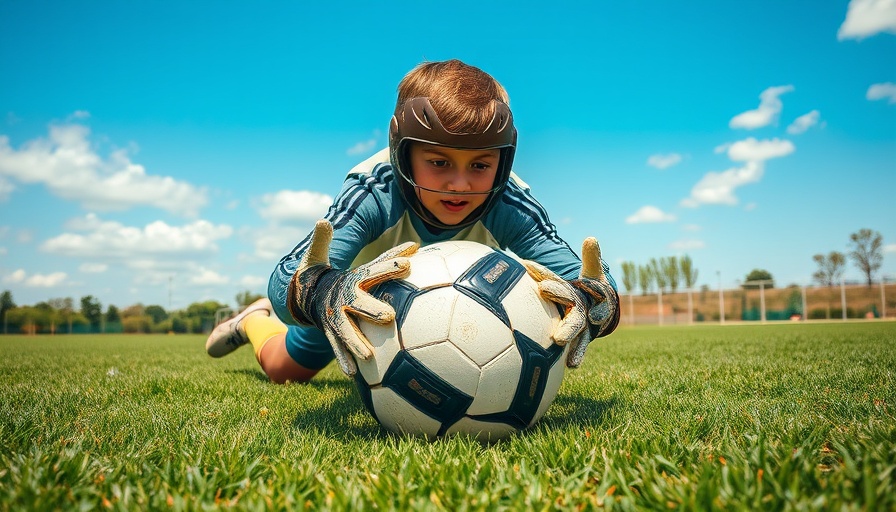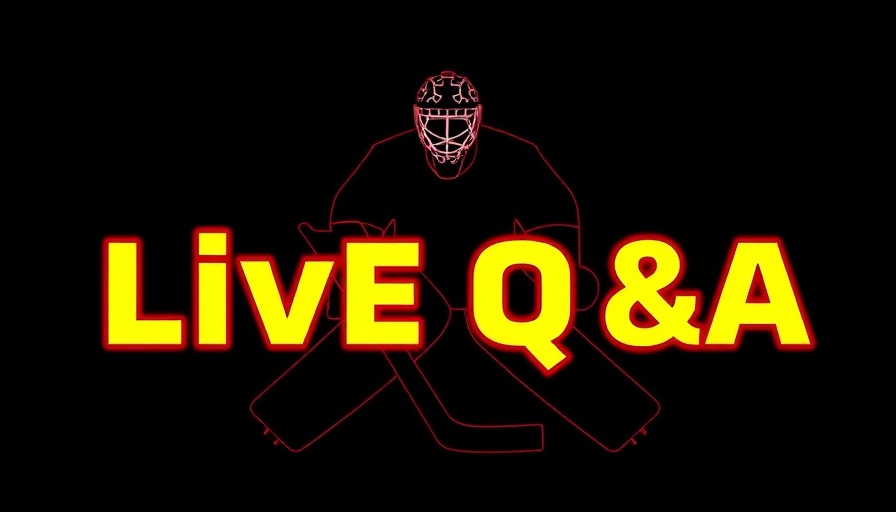
The Importance of Structured Training for Young Goalies
As a young goalie, training goes beyond mere practice on the ice. It's essential for aspiring players, especially those around the age of 14, to have a structured training regimen that includes various elements such as strength, speed, and mobility. This approach ensures well-rounded development and enhances on-ice performance. When young goalies understand how their bodies work and train effectively, they set a solid foundation for a successful hockey career.
Common Concerns: Injury Prevention and Recovery
Injuries can occur at any stage in sports, especially when training intensity increases. Young goalies like Ricky, who experience pain or discomfort, should not ignore these signals. Seeking help from a physical therapist is crucial. They can offer assessments tailored to young athletes, ensuring they can train without risking injuries. Furthermore, early intervention helps prevent minor issues from becoming serious problems, enabling young players to stay competitive and engaged.
Training Philosophy: Understanding Athlete Needs
The training philosophy highlighted by professionals, combining insights from sports medicine with practical training strategies, stresses the importance of understanding each athlete's biomechanics. For goalies, this means focusing on specific needs related to their position. By recognizing individual strengths and weaknesses, tailored training programs can be developed. Coaches and parents should encourage communication between players and trainers, facilitating adjustments that maximize performance on the ice.
Actionable Training Tips for Young Goalies
Parents and coaches should work together to create a practical training plan that can be implemented both on and off the ice. This includes ensuring that training sessions encompass various exercises that build stamina, flexibility, and strength relevant to goaltending. Incorporating off-ice drills is equally vital; activities such as dynamic stretches and agility drills can help young athletes improve their performance when they hit the ice. Engaging in a community of supportive coaches and other goalies will also promote a positive training environment, benefiting all involved.
Maximizing Success through Community Engagement
Support from the local hockey community can make a big difference for young goalies. Parents, coaches, and fellow players should encourage involvement in goalkeeping clinics, summer camps, and Q&A sessions like the one hosted weekly by Goalie Training Pro. Events like these provide valuable information and foster an environment of learning that empowers players to better understand their training. This shared responsibility creates a sense of belonging among young athletes, enhancing their motivation to succeed.
 Add
Add 

 Add Row
Add Row 


Write A Comment